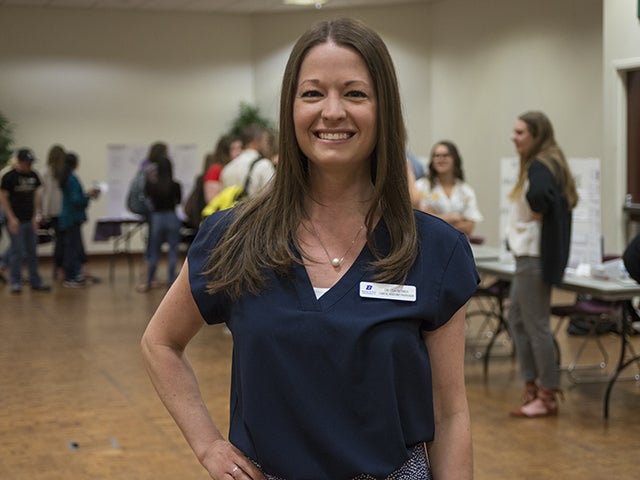
Teaching a classroom full of students with diverse learning abilities is a challenge all teachers face. Fortunately, one Boise State course is helping teachers-in-training better prepare for learners of all abilities, while also giving adults with disabilities a unique opportunity to enroll in a college class and experience campus life.
The Secondary Transition And Reverse Service-learning (STARS) project brings together aspiring teachers in Lisa Beymer’s ED-ESP 250 Exceptionality in the Schools class with local adults with disabilities, who travel to campus from transition programs in the Boise School District and Kuna. Once students from the community arrive on campus, they meet with Boise State mentors to hang out, socialize and grab food before class.
“As an educator, this collaboration allows me the unique privilege to practice what I preach to our future teachers every day – that any person with a disability deserves the right to access the same educational opportunities as their peers without disabilities.”
– Professor Lisa Beymer
Jeremy Ford, assistant professor of early and special education, started the program at Boise State in fall 2018.
“The project helps to build Boise State’s capacity to provide students with developmental disabilities an opportunity to access postsecondary education,” Ford said.
“We see this access mandated at the elementary and secondary public school settings, but not nearly enough options are offered at the post-secondary level yet,” Beymer said. “We hope to provide a model of how it can work.”
Participating students with disabilities have the opportunity to develop relationships and build social skills with their Boise State mentors, with whom they’re in class. Additionally, the program helps Boise State students gain a better understanding of disability as a type of diversity.
“The STARS project is so beneficial for our students. It provides them experiences they typically would not have with their same age peers,” said Jennifer Comstock, a teacher in the Boise School District who works with students with disabilities. “They are provided a safe environment to learn and grow. Each year I have seen growth in each student, especially in their confidence, self-knowledge and self-advocacy.”
Through teaching the course this semester, Beymer is looking forward to adapting the class to optimize the experience for participating students.
“We are working on additional options for our partners to become more ingrained in the course in authentic ways,” she said.
For example, creating leveled textbook reading materials, providing options for assignment completion and establishing criteria for in-class participation.
“I want them to know they are capable of meeting the expectations of every other college student,” Beymer said.
The course also is open to other majors interested in learning more about special education and individuals with disabilities.